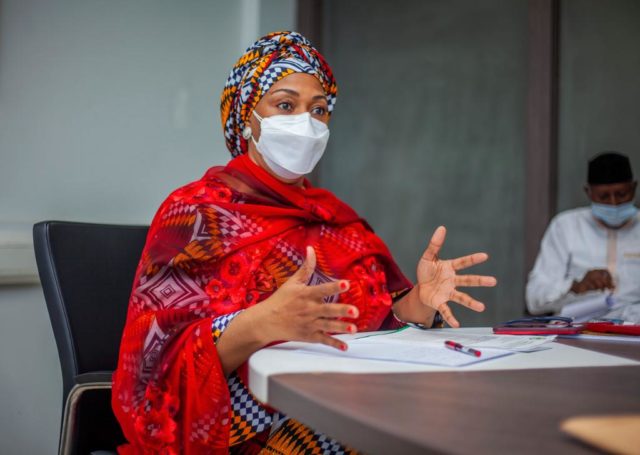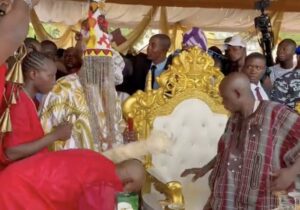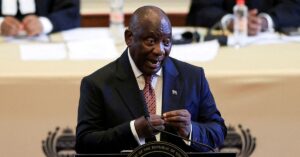
The Federal Government has called on Nigerian women to leverage opportunities available in the mining value chain for their empowerment benefit.
The Minister of State for Mines and Steel Development, Senator Gbemisola Saraki, made the call in Abuja while delivering the keynote address at the opening of a 2-day Women in Mining High-Level National Summit in Abuja.
Saraki who was represented by the Director of Artisanal and Small-Scale Mining, Patrick Ojeka, disclosed that in line with global practices, the federal government has come up with initiatives, policies, and programmes aimed at mainstreaming gender and creating an enabling environment for men and women alike to benefit from the rich potentials of the sector.
Saraki said: “We should not forget that the government since 2018 has mainstreamed gender in its activities by making sure that its laws, policies, and programmes are not devoid of gender responsiveness.
“Gender mainstreaming has been embraced internationally as a strategy towards realizing gender equality. Our goal, therefore, is to ensure that both men and women have equal opportunities or benefits from the sector.
“Nevertheless, government alone cannot do it; that is why the effort of Women in Mining in Nigeria must be applauded,” the Minister said.
Saraki further said that apart from some of the periphery jobs women do to earn a living in the mining sector today, only very few own a site of their own because it is capital intensive and many women in Nigeria do not have personal resources or they lack access to bank loans as they do not have collateral for such.
The Minister, therefore, urged women to always strive with personal efforts to invest in the exploration of minerals also in order to have reliable data, adding that it is only then that banks would be willing to give them support by way of loans.
Earlier, the National President of WIMIN, Engr Janet Adeyemi, pointed out that the High-Level Policy Dialogue was the summit of a year-long programme tagged, “Mainstreaming Gender and Gender Justice in the Solid Minerals Sector of Nigeria”.
Adeyemi also said that it was designed and implemented by Women In Mining In Nigeria, and funded by OSIWA and Ford Foundation, and five states were captured as the implementation base of the programme whose WIMIN Chapters were all represented at the event.
She listed the states as Taraba in the North-West, Plateau in the North-Central, Osun in the South-West, Ebonyi in the South-East, and Edo in the South-South.
“During each phase of the project in the states, the management of WIMIN paid advocacy visits to the key state actors in each state where it was implemented for engagement on the inclusiveness of gender in the policies and programmes of the state, and all the states pledged their commitments”.
Outlining the various achievements recorded by WIMIN so far, the women in mining chief advocate expressed delight that with the creation of more awareness, many women are getting interested in mining to the extent that the body now has a membership strength of over 3,000 and still counting.
“Today, WIMIN has over 3,000 members in Nigeria and the figures are growing speedily. We have established our states chapters across 5 geo-political zones in Nigeria”.
“WIMIN has been mainstreamed into the Ministry of Mines and Steel Development as a recognised gender-rights organisation in the mining sector”.








